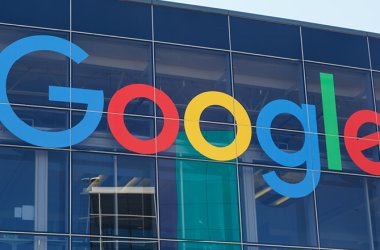 With Google set to buy app-maker Waze, the question is whether Google actually needs the crowd-sourced traffic app or is simply trying to stick it to its competitors.
With Google set to buy app-maker Waze, the question is whether Google actually needs the crowd-sourced traffic app or is simply trying to stick it to its competitors.
On Tuesday, Google confirmed weeks of rumors that it is buying Waze. The company did not disclose the terms of the deal, but early reports put the price between $1 billion and $1.3 billion.
Facebook, a major Google competitor, reportedly had been in serious talks with Waze, as well, looking to continue to beef up its mobile offerings. However, late last month Facebook reportedly ended a bidding war with Google by pulling out of acquisition negotiations.
That left the door wide open for Google.
Waze offers traffic and navigation apps for iOS and Android smartphones and tablets. The tool lets users share real-time traffic information, including updates about construction, traffic jams, police speed traps and accidents. Users also can use Waze to share information about local gas prices, and direct other users to stations with the lowest prices.
Waze plays well with Facebook, letting users track friends who are driving to the same destination. “Coordinate everyone’s arrival times when you pick up or meet up with friends,” Waze says on its website.
Jeff Kagan, an independent industry analyst, said Google is smart to grab up the app maker.
“Google may have a leadership position in the navigation space today, but that means they also have to work twice as hard to keep that position,” said Kagan. “Waze is a newer and different idea than traditional navigation. Waze will not transform Google navigation on its own, but it will add another flavour, and choice and innovation always keep customers coming back for more.”
However, Patrick Moorhead, an analyst with Moor Insights & Strategy, disagrees.
“I think this is a colossal waste of cash and I’m surprised investors aren’t asking more questions,” he said. “This doesn’t bring a whole lot of new capabilities to Google. All this brings to Google is a social element to mapping and directions, which they could have built themselves.”
Moorhead added that he simply can’t see the advantage of Google buying Waze – other than keeping it out of the hands of competitors like Facebook and Apple.
“It’s bizarre that Google paid this much for so little,” said Moorhead. “Millions of people daily use Google Maps and Google could have easily built in this capability. They already use crowd-sourced data for traffic conditions, and adding an ability to communicate what is causing the traffic issue is an easy add for a company that makes autonomous cars.”
Dan Olds, an analyst with The Gabriel Consulting Group, is more positive about the purchase, noting that it gives Google a solid platform for travel apps.
“Waze is a highly social application with more than 50 million users,” said Olds. “Google doesn’t need more users. It has plenty of them. But what it wants is more interaction between users and more highly involved users. This gives them a treasure trove of data that they can monetise in various ways.”
He said Google could have built its own version of the Waze app, but with deep pockets it’s easy to simply buy what it needs.
“I think that Google is constantly looking at the landscape when it comes to new features and build-versus-buy decisions,” said Olds. “I think that buying Waze is the more attractive option because the Waze app is already working and highly popular.”





